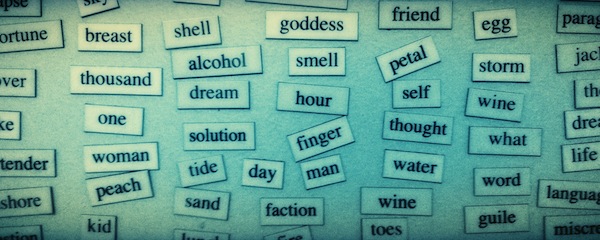MIKE SMITH takes a look at the unusual structure of Sir Arthur Quiller-Couch’s curious story: ‘The structure notably presents it as two quite disconnected stories; the only obvious connections between them are the author and his narrative proxy, and the fact that both are written as if seen from the perspective of the eponymous cottage…’
K J ORR on poetry and the short story form: ‘As a short story writer my relationship with poetry is marked most of all by a lack of self-consciousness: by lightness, flexibility, pure pleasure. Friends recommend poems, or poets, and I magpie favoured fragments, which are charged too with my own memories of time and place and connection…’
Over the past weeks, the team of THRESHOLDS judges has been busy reading and re-reading the entries, debating and deliberating. Now, we bring you.… The 2016 THRESHOLDS Features Award longlist.
NAFISA MUHTADI discovers the power of ugly prose: ‘The more I read short stories that are written in the lyrical style beloved by some competition judges, the more I crave ugliness in prose. Poetic narratives with windswept thoughts lyrically describing landscapes, rivers and seas are not for me…’
ALLYSON DOWLING looks at the evocative description in ‘Boule de Suif’ by Guy de Maupassant: ‘Maupassant was incapable of writing a dull sentence. His prose is naturalistic, full of finely wrought and vivid detail…’
PODCAST: In the second instalment of this series of Short Story Masterclass podcasts, JAC CATTANEO talks with acclaimed author SALLEY VICKERS about psychology and the short story, anarchy, maternal betrayal, tapping into unlived lives, and the misunderstandings of human relationships…
CLAIRE EDWARDS walks us through Raymond Carver’s classic short story, Cathedral: ‘It is as if he has brought the ancient Greek character Tiresias, whose blindness is compensated for by second sight, into the prosaic setting of a living room’.
‘It’s worth turning aside here, from what the story is about, to how it is written … Morrison nudging his narrator into our consciousness, subtly turning a third person narrative into a first person one…’ MIKE SMITH looks at the gentle humour and softer voice of Arthur Morrison in ‘Charlwood with a Number’.
C.D. ROSE discovers the writing of Bulgarian author Georgi Gospodinov for the first time: ‘It is one of the most perfect stories I have ever read, doing exactly what a short story can do best, and what only a short story can do: encapsulate lifetimes in minutes…’
K.S. DEARSLEY on the short stories of Dorothy Richardson: ‘We are the narrators of our own stories. The tales we tell ourselves about who we are construct our identity, they are how we make sense of the world…’









